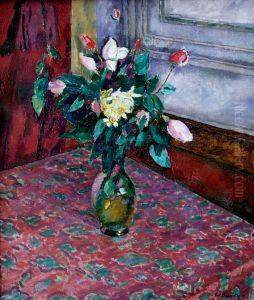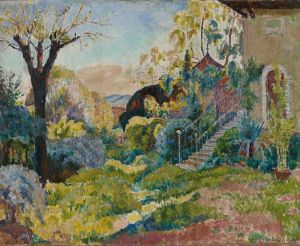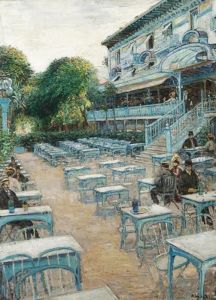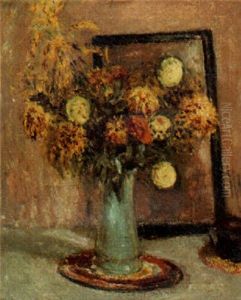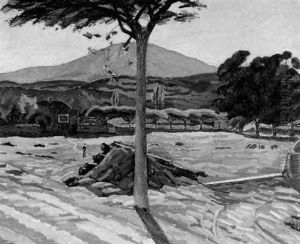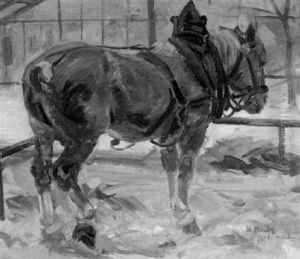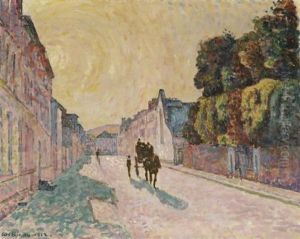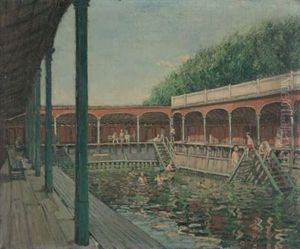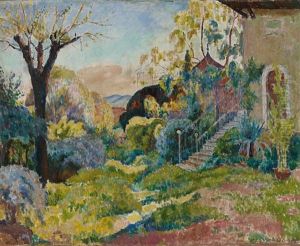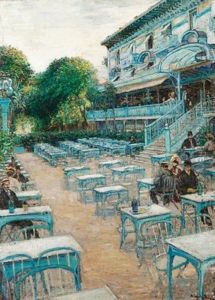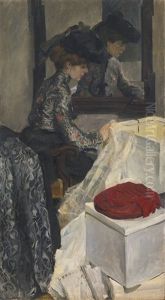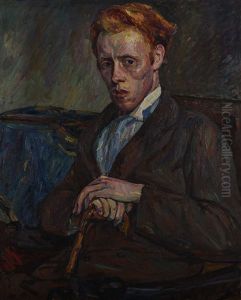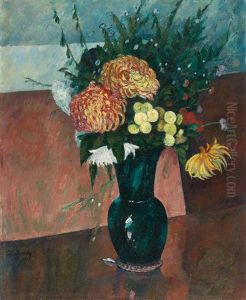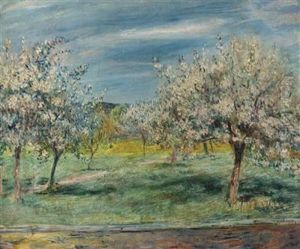Walter Bondy Paintings
Walter Bondy was a notable figure in the art world, particularly recognized for his contributions as an art collector, dealer, and critic, although information on his artistic endeavors remains relatively scarce compared to other luminaries of his time. Born in Vienna, Austria, in 1880, Bondy was part of an era that was rich in cultural and artistic evolution, especially within the European context. His life spanned a period of significant historical events, including the turn of the century, World War I, and the lead-up to World War II, which inevitably influenced the art market and the context within which Bondy operated.
Bondy's career is most distinguished by his involvement in the art market of Paris, which was the epicenter of the art world during the late 19th and early 20th centuries. Paris attracted artists, collectors, and dealers from around the globe, making it a melting pot of artistic ideas and innovations. In this vibrant environment, Bondy established himself as a prominent art dealer, engaging with both the Impressionist and Modern art movements that were revolutionizing artistic expression at the time. His activities also extended to Berlin, another significant hub for the avant-garde, further cementing his influence in European art circles.
Throughout his life, Walter Bondy was known for his keen eye for emerging talent and his deep understanding of the art market's dynamics. He played a crucial role in promoting and supporting artists who would later become central figures in the art historical canon. As a collector, Bondy amassed a significant collection that included works by some of the most important artists of his time, although the fate of many of these works during and after World War II remains a subject of historical inquiry due to the tumultuous events of the era.
Bondy's career was not without its challenges, particularly with the rise of the Nazi regime in Germany, which had a profound impact on the art world. Many artists and dealers, including Bondy, who was of Jewish descent, found themselves in increasingly precarious positions. The political climate of the time led to significant upheaval in the art market, including the looting and forced sale of artworks, which impacted many in the art community, Bondy included.
Walter Bondy's death in 1940 marked the end of a significant chapter in the history of art collecting and dealing. While perhaps not as widely recognized as some of his contemporaries, Bondy's contributions to the art world, particularly in terms of his support for avant-garde artists and his influence within the art market, have left a lasting legacy. His life and career offer valuable insights into the complexities of the art world during one of its most turbulent periods.

